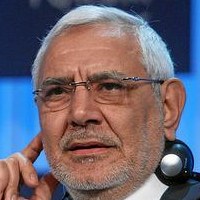Published: february 20, 2010; How the Middle East (often) thinks: Logic is for the Infidels.
by Barry Rubin
Buried deep in an obscure article about a Pakistani poet-politician is a clear presentation of one of the most powerful ideas shaping this contemporary world.
The article was written by Pakistani columnist Shah Nawaz Farooq in the Urdu-language Roznama Jasarat newspaper and translated by MEMRI. Its theme is about how the poet Muhammad Iqbal, who died in 1938, urges all Muslims to engage in Jihad even if they pursue this warfare against the infidel by non-military means.
Yet like a diamond in a coal mine appears in passing the following side:
“A characteristic of the infidel’s psychology is superficiality. It means that a man gives importance to the apparent causes, and considers that to be everything. Worshipping logic is also a pillar of the infidel’s psychology. The infidel weighs everything on a scale of profit and loss, and in light of ‘two and two make four.’ His standard is not good and evil–but profit and loss. This is why he wants to see himself as powerful at an apparent level.”
One could write a library full of books on this little paragraph but here’s the short version. If one believes the deity guides the world completely and has set all the rules for human behavior, then all man-made morality, reason or logic are not guides to life or reality but mere illusions. Humanity is weak because Allah is strong; humanity has no real freedom because its choice is to obey the rules of Islam or be in rebellion against God’s will. Divine standards of right and wrong transcend any human categories. Believing that events come out of material factors and can be understood through human logic is to be “superficial,” to miss the true basis of events.
There is much, here, that reflects Western history of course. In much of the ancient world and then again between the fall of Classical civilization and the Renaissance, Reformation, Enlightenment, the rise of the scientific method, and other developments—roughly between the fifth and fifteenth century, this kind of thinking dominated. But such a world view eroded long before it came to an end completely. Logic, enthroned in Greek and Jewish civilization, was already an integral part of Western life.
Of course, the development of the modern world, science, and other things was made possible by the enthronement of logic. The last three centuries of history, despite many setbacks, have intensified its hegemony. Without it, the West would still be full of extremist ideology, hatred, superstition, violence, and low living standards. In other words not unlike most contemporary Muslim majority lands.
(Yes, there are still people in the West thinking in similar terms, religious “fundamentalists” and believers in bizarre conspiracy theories. But the differences between this minority in the West and majority in most Muslim-majority states are important. In the Western case they don’t run the society and government; they don’t successfully repress alternative view points; they don’t run the media or the schools; they don’t threaten and use violence against their adversaries except in a tiny handful of cases; and even they themselves have absorbed a great deal of logic, science, secular philosophy, and democratic standpoints whatever they say to the contrary.)
(Indeed, one could argue that the powerful bearer of irrationalism today in the West is the post-Marxist political left with its contemporary ideology. Incidentally, some snobs of that type might say that many or most Muslims in the Middle East were clinging to guns, religion, and ethnic hatreds, but to discuss such matters would requires a different article from this one.)
For a short time in the Medieval era, there were a few Muslim philosophers who sought to unite faith and logic, but they had no impact on their own societies. In contrast to the West, the equivalents of the Spanish Inquisition triumphed in the Muslim majority world. If one could speak of Islam being “hijacked” at all it was set on its current course by its own rulers and dominant religious figures about eight hundred years ago. The contemporary political Islamists, along with other powerful conservative forces, want to keep it that way and even thrust it back into an even more thorough conformity with that tradition.
Consequently, the ramifications of Farooq’s points—and they are very widely accepted in Muslim majority societies—are enormous. These ideas are a gigantic dam blocking the way to democracy, freedom, higher living standards, and equality for women.
The infidel, says Farooq, “wants to see himself as powerful at an apparent level.” Hence, “I think therefore I am”; “Man is the measure of all things”; and much of the philosophical basis of Western thought is just an exercise in egomania. For an equivalent of Baruch Spinoza to quip,”The alleged will of God is the refuge of ignorance” today in the Arabic-speaking world would be a hanging offense, especially because that concept would be so subversive to the current order there.
In the West, to subscribe to the Enlightenment and to humanist values doesn’t require one to be an atheist or even an agnostic. One must merely believe that a supreme being either doesn’t interfere too much or leaves a large latitude to human beings to make up their own rules. It is also to accept a separation of religion and society, with the former relegated to the private sphere.
While such concepts are accepted by many Muslims in their daily lives, it is practically forbidden nowadays–though not necessarily a few decades ago–to state such assertions openly and to enshrine them in national law or governmental practice in Muslim majority countries. Engineering, medicine, and science may function on the basis of Western-developed ideas and techniques, but the local contribution to these fields remains small. When it comes to politically related, non-technological matters the situation is far worse.
To believe in “apparent causes” is dangerous because it can throw into question the nature of the existing societies, the regime in power, Arab nationalist philosophy, and Islam. It can, for example, mean comprehending how the dominant currents in Muslim-majority societies produce stagnation; that the stronger side (the West, Israel) will win military confrontations; and that major social and political change away from hide-bound traditional society is desperately needed.
Instead, ideas are spread that shore up the status quo or want to push it toward even more complete adherence to what is deemed as religious purity. What are thought to be “real” underlying causes can derive from conspiracy, adapted Marxism, or a belief in divine intervention. By such means, it is easy to maintain that the Muslims will win since the deity is on their side or the West is weak and decadent.
With such certainty of success who cares how big opposing armies might be or what weapons they carry? And so one can justify fighting on for decades and initiating disastrously losing wars (Hamas throwing out the existing ceasefire to attack Israel in December 2008, for example) because eventual triumph is ensured.
If you don’t “worship” logic then you think and act illogically, damaging your society and ramming it repeatedly into stone walls. If you don’t take into account profit and loss, you lose. Compare this, by the way, with the recent U.S. assessment of Iran as unlikely to use nuclear weapons because the regime would measure such a step in terms of profit and loss! My article provides numerous examples from modern Middle East history where the regime acted—at least according to Western conceptions of logic—in an “irrational” manner.
During the Iranian revolution of 1979, its leader Ayatollah Ruhollah Khomeini sneered that the West didn’t understand that the revolt was not just intended to lower the price of watermelons, that is was waged for spiritual reasons.
Yet in the West this very mistake is made by those who consider themselves enlightened and tolerant. They rail against how the West allegedly fails to understand Islam and the Middle East properly. Ironically, their arguments conflict with something that most Arab intellectuals and perhaps half the population of Iran or more already knows about what’s wrong with their societies.
A perfect example of this problem is the mistranslation of the word Islam, which means not peace but submission to God’s will, which is precisely what Farooq is explaining. That’s what is in command, not logic, not material conditions, or any other such “superficial” explanations.
In line with this philosophy, which weighs everything in terms of good and evil, it is “right” to be intolerant, since why should someone tolerate what is clearly evil? That is why the United States, the West, Israel, and any local dissenters from these views are often labeled as “enemies of God.” They deserve to be wiped out, killed, treated as demons, as “satans.”
Toleration is impossible in a society based on absolute certainty. Democracy is a mistake unless one feels certain–as do some of the most influential supposedly “moderate” Islamists that elections are okay because they would win a majority and then be able to impose their will permanently on the society.
Equally, if faith wipes out the need to agree that “two and two make four” then evidence is not required for any assertion. Lying to journalists or to others is morally right because those you are condemning are innately wrong so what do details matter? Israel is evil; America is evil; the West is evil; modern society is evil. So you can accuse them of anything without being wrong. Why make peace with Israel or concessions to the United States when any such deal would be—literally—a pact with the devil and mere patience or struggle will lead to your enemy’s complete downfall anyway.
Guess what? With rational arguments you won’t persuade people who reject that whole way of thinking. Of course, not everyone in Muslim-majority countries think that way. What’s most important, however, is that those who don’t do so are either influenced by the mainstream, shut up, or form a persecuted minority with little support. The graduate of a university faculty in law, medicine or engineering is far more likely to join an Islamist party than a liberal democratic one. And while the rulers generally—though not always—know better also, they use the forces of irrationality and faith for their own purposes.
The rising forces in the Middle East largely follow the Farooq mode of thinking. They may seize power completely or just continue to shape society. They can press governments into giving lip service to their world view or just convince them to manipulate this approach for their own advantage.
For the West to formulate a policy for the region that is entirely ignorant of this tremendous power for what one might called proud irrationalism will ensure failure, bloodshed, and even potential catastrophe.
About the author:
Barry Rubin is director of the Global Research in International Affairs (GLORIA) Center and editor of the Middle East Review of International Affairs (MERIA) Journal. His latest books are The Israel-Arab Reader (seventh edition), The Long War for Freedom: The Arab Struggle for Democracy in the Middle East (Wiley), and The Truth About Syria (Palgrave-Macmillan). His new edited books include Lebanon: Liberation, Conflict and Crisis; Guide to Islamist Movements; Conflict and Insurgency in the Middle East; and The Muslim Brotherhood.
Mazzeltov,
Crethi Plethi



 RSS
RSS











Great article from Barry Rubin: Logic is for the Infidels #islam #israel http://j.mp/ckfiiR
RT @CrethiPlethi: Great article from Barry Rubin: Logic is for the Infidels #islam #israel http://j.mp/ckfiiR
RT @CrethiPlethi: Great article from Barry Rubin: Logic is for the Infidels #islam #israel http://j.mp/ckfiiR
Great article from Barry Rubin: Logic is for the Infidels #islam #israel http://j.mp/ckfiiR http://ff.im/ghxOg
Logic is for the Infidels http://bit.ly/cJEpHn via @AddToAny
RT @CrethiPlethi: Great article from Barry Rubin: Logic is for the Infidels #islam #israel http://j.mp/ckfiiR http://ff.im/ghxOg